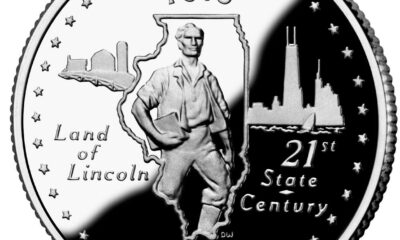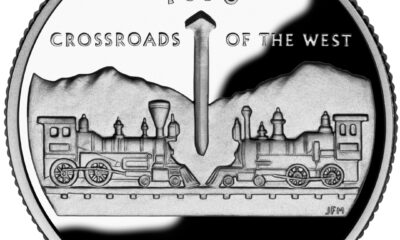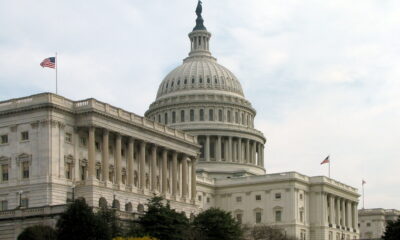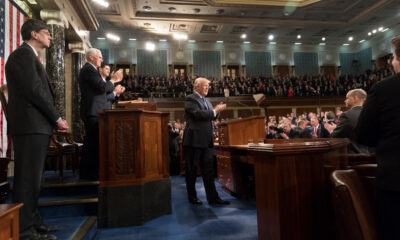Media
Texit debate heats up as deadline approaches
The Texit debate is heating up as the legislative deadline approaches. Here’s a FAQ on all the questions anyone has about Texas independence.

Texit – a possible Texas Exit from the Union – is still part of the news cycle in Texas. Last week a TV station in Corpus Christi polled its viewers on the subject. Earlier, a Fort Worth opinion columnist scathingly told his fellow Texans to “forget secession.” How did the poll turn out? What did this latest detractor of secession have to say?
Texit bill stalls, but enjoys overwhelming popular support
HB 1359, the Texas Independence Referendum Act, has stalled. The Texas House Committee on State Affairs has it but has not even scheduled a hearing. Someone needs to act fast, because the Legislature ends its session on May 31. Which brings up an ironic dig the Fort Worth detractor brought up against its proponent. More on that below.
More to the point, Station KRIS-TV Channel 6 in Corpus Christi polled their viewers. And if Brandon Reynold’s summary of the report on that poll is any indicator, the results did not please them. (Mr. Reynolds serves on the staff of the Texas Nationalist Movement.)
More than sixty percent of viewers answering the poll said they would like the Texas Legislature to put Texit to a vote. This, says Reynolds, comports with TNM’s own internal polling. But the newshounds then asked these rhetorical questions:
What will be the currency? What happens to federally controlled infrastructure? Will you need a passport to visit Texas? Is this legal?
CNAV will answer these questions later. That KRIS-TV staff would ask them, at least shows that they take the bill, and support for same, seriously. But Mr. Bud Kennedy of Fort Worth would rather mention Texit only to condemn it.
Who is Bud Kennedy?
Bud Kennedy has a regular column at the Fort Worth Star-Telegram. Sarah Weiss (also of TNM) seems to think he is a “food blogger and self-proclaimed political commentator.” Actually, a current snapshot of Kennedy’s submissions shows that lately, he writes more on “Politics and Government” than on local restaurants. He writes often, often enough for one to infer his politics from his writings.
And what are they? The sample the Fort Worth Star-Telegram provides shows that he is most likely:
- A Democrat,
- Sympathetic to the political left,
- Not sympathetic either to American patriots or to Texas patriots,
- Copacetic with Big Tech censorship, and
- Opposed to building any sort of “parallel society.”
That last would apply equally to the “parallel polis” of Steven Turley, PhD, and to Texit. He accuses Andrew Torba and his associates at the Gab social network of “spewing … hate.” Yet he also, in an article about the upcoming special election in Congressional District Six, supports, or at least apologizes for, critical race theory. He says of it:
Critical race theory simply studies whether America’s legacy of segregation has perpetuated racism.
Wrong, Bud. Critical race theory, like the larger Frankfurtian critical theory, says the only thing standing in the way of “black progress” is the white man. CNAV has been over this before, and again. In other words, racist ≡ white.
Bear this in mind as CNAV analyzes Bud Kennedy’s screed against Texit.
What Bud Kennedy says about Texit
So what does Bud Kennedy have to say? In rough order:
Texas cannot secede, and the War Between the States decided that issue.
Texans dare not trust any of the worthies at the Texas Nationalist Movement. “Bubbas going bug-eyed wild!” he thunders – while linking to the TNM’s About page.
Several groups promoting secession are selling memberships and merchandise. In short, Bud Kennedy accuses them of fraud.
The founding documents of the United States say that secession is illegal. Kennedy cites the Articles of Confederation and the Preamble to the U.S. Constitution.
Texit would need a Texas Constitutional amendment. That needs two-thirds of the full memberships of both Houses of the Texas Legislature. Kennedy doubts proponents of Texit would get this.
Half of State-wide officials want to run for President, so they don’t want to talk about secession.
Rep. Kyle Biedermann (R-Fredericksburg, Texas) owns an Ace Hardware store, so what does he know?
The legislature is too busy to take up the Texit Bill.
Kyle Biedermann disrespects the Pledge of Allegiance, especially the “one nation, indivisible” part. (At least Kennedy knows the original wording of the Pledge. Congress added “under God” later.)
Kyle Biedermann somehow disqualified himself as a legislator because he attended the Trump rally on 6 January.
And last, Texit would need solutions to:
constitutional rights, citizenship, military defense, lost business headquarters and jobs, pensions, benefits, U.S. property, a postal service, airline operations and — don’t forget — paying off our share of the federal debt.
So what do we have?
Frankly, we mostly have argumentum ad hominem, which Kennedy directs against TNM leadership and staff, Rep. Biedermann, and any who support them. But his wider animus against conservatives clearly shows in his writing. He can’t seem to make up his mind whether to accuse conservatives of:
- Buying elections or movements with big donations, or
- Fraud, in the sale of memberships and merchandise.
The few legitimate points he raises depend heavily on his definitions of concepts like “citizenship” and “constitutional rights.” Given the rest of his body of work, CNAV would advise readers to be highly skeptical that Bud Kennedy can speak intelligently about either, or whether any freedom-loving patriot can accept his definitions.
A local columnist, as Sarah Weiss pointed out, gave his own thirty-minute answer to Mr. Kennedy.
CNAV won’t copy that, or Sarah Weiss’ own summary. Instead, CNAV offers this FAQ to answer any and all legitimate questions, from Bud Kennedy or KRIS-TV Channel 6.
Texit FAQ
Currency and infrastructure
What currency shall an independent Republic of Texas use?
Texas has its own gold reserve. So Texas could issue a currency with that as its basis. Furthermore, Texans could and should prepare for Texit by investing in Bitcoin and other blockchain cryptocurrencies. They can then store these in “hardware wallets” and other ways to secure these assets apart from, and independent of, any banking or other institutions outside of Texas.
What happens to such infrastructure that the federal government controls?
For everyone’s information, Texas and/or Texans own 95 percent of the land area of Texas. Furthermore, Texas has its own electrical grid. CNAV has discussed before what Texas must do to improve on that.
Channel 6 might be thinking of highways. But even the Interstate Highway System is under the control of individual States through which given stretches of Interstate Highways happen to pass. Texas would lose federal highway funds. But Texas is a tax donor State. Those highway tax dollars would stay in Texas to maintain highways in Texas. (And that doesn’t even account for deciding to privatize transportation infrastructure, starting with highways.)
“Infrastructure,” in this context, would include air-traffic control. To establish a Texas Aviation Administration would be a simple matter. Even simpler would be to privatize air traffic control. Aviation Ratio, Incorporated once handled air-traffic control, in addition to air-ground communications for airlines.
And what of the airlines themselves? Texas has one major airline headquartered in Texas: Southwest. United Air Lines might divest itself of several companies it acquired – again, from Texas.
Diplomacy and trade after Texit
Will one need a passport in order to visit an independent Republic of Texas?
Passport and visa control are the most common subjects of haggling between and among nation-states at peace. The Texit Committee (a joint committee of the Texas Legislature that would sit if the Texas Referendum returns a Yes vote) would deal with this. CNAV would guess that yes, Texans and residents of “the rest of America” would need passports to travel back and forth. Visa control would be subject to negotiation. Ample precedent exists for requiring passports only. The precedents include travel between the United States of America and:
- The United Mexican States,
- Canada, and
- The State of Israel
Would businesses withdraw their headquarters and installations from an independent Republic of Texas, and take their jobs with them?
That’s a decision for each large business to take. Some private installations began as independent businesses before trans-national corporations acquired them. Lockheed-Martin, who acquired General Dynamics of Fort Worth, is the prize example. (So is United Air Lines, which acquired Continental and Texas International.) Those trans-nationals could easily sell those businesses back. Texit proponents must prepare for spiteful shutdowns of some of these installations, and prepare to re-activate, rebuild, or replace them at need. Let’s ask Texans who work at those installations whether they would move out of Texas. Most probably not.
But at least one trans-national is relocating to Texas! That is Elon Musk Holdings. Those holdings famously include SpaceX, Tesla, Neuralink, and The Boring Company. The first three already have working installations in Texas, on-line or under construction. The Boring Company has placed two tunnel borers on the “Terafactory Austin” property to prepare to build a tunnel network under Austin and to serve and connect all Elon Musk Holdings installations. Tesla is even building a Big Battery in Angleton, in response to the recent Texas Deep Freeze.
The space program deserves special mention. True, NASA has its Johnson Space Center in Houston. But SpaceX might soon move all its facilities to Texas, to the new city of “Starbase” it has talked of building at Boca Chica.
Is Texit valid under the law and Constitution?
Does the Constitution forbid secession?
Violence alone never solves a question of law in perpetuity. As Weiss points out, a “perpetual union” remains “perpetual” only as long as all parties agree. The Declaration of Independence sets another, far more salient precedent:
Whenever any government becomes destructive of [the] ends [of securing inalienable rights], it is the right of the people to alter or abolish it, and to institute new government, laying its foundation on such principles and organizing its powers in such form, as to them shall seem most likely to effect their safety and happiness. Prudence, indeed, will dictate that governments long established should not be changed for light and transient causes. And accordingly all experience hath shewn, that mankind are more disposed to suffer, while evils are sufferable, than to right themselves by abolishing the forms to which they are accustomed. But when a long train of abuses and usurpations, pursuing invariably the same object evinces a design to reduce them under absolute despotism, it is their right, it is their duty, to throw off such government, and to provide new guards for their future security.
And that, to quote Jefferson, is where we are today. Kennedy was good enough to quote Biedermann semi-accurately as accusing the U.S. government of breach of faith. It actually amounts to breach of contract.
Furthermore, the Constitution has its three “No State shall” clauses in Article 1 Section 10. Nowhere does it actually say, “No State shall leave this Union.”
And what about the case of Texas v. White?
TNM published this analysis of the 1869 case of Texas v. White, and the Supreme Court opinion in that matter. That analysis cites multiple “messy” features of Chief Justice Salmon P. Chase’s majority opinion. For one, West Virginia formed out of a part of Virginia, without the consent of the Virginia legislature. That violates Article IV, Section 3. Furthermore, as Bud Kennedy even cites, the Resolution of Annexation clearly gives consent to Texas to subdivide into five States.
So Chase’s description of “an indestructible union of indestructible States” simply does not apply. Furthermore, Chase is just as wrong in describing the present Constitution as an amendment to the Articles of Confederation. To begin with, the Framers violated the instructions half of them had merely to amend those Articles, not scrap them. More to the point, the Constitution came into force and effect with the ratification of nine States, not all thirteen.
Therefore nothing really upholds Texas v. White except a majority vote. Besides, Texas lacked the industry to support independence. That was then. This is now.
Practical changes to Texas law and Constitution with Texit
How likely is Texit to pass?
First, Bud Kennedy says he “trust[s] he [Kyle Biedermann] will see” who favors leaving the Union, and who doesn’t. All right then! Let the Texas Legislature pass HB 1359 and find out! If the Texas Legislature really is “too busy,” then we won’t know, will we? Though actually, as KRIS-TV Channel 6 found out to their chagrin, we do know. And the answer is: yes! Nor would CNAV assume that Texans could never elect two-thirds supermajorities for secession to their own Legislature. Let them hold primary and general elections, and find out! And stop excusing “chubbing,” as Bud Kennedy has done.
Suppose the referendum does return a Yes vote. What then?
Then a joint committee of the Texas House and Senate forms, with the Speaker and Lieutenant Governor jointly presiding. This committee then takes up how to make Texit actually happen. They would therefore take up questions of “military defense,” “postal service,” and whatnot.
Dan Miller explicitly said, in a Webinar in which CNAV took part, that he doubts “the rest of America” would stomach military action against Texas. But even he didn’t know the disgraceful way The Brass would start treating junior officers and enlistees! Upholding basic tenets of human biology now has become grounds for trial by court-martial, or so one might infer. Could a President Biden or an Acting President Harris rely on the troops to invade, bombard, or otherwise attack Texas after receiving such disrespectful treatment as that? CNAV doubts it.
So what does this committee do? Very likely it sends a deputation to Washington. The deputies deliver an ultimatum: let Texas go, or watch Texas instantly increase its representation in the Senate by eight. And if even one of those Senators votes along with Senators Cruz and Cornyn, the Senate falls into Republican hands. The administration might prefer to remove Cruz and Cornyn from the Senate and keep a solid Democratic majority that wouldn’t even require any tie-breaking. And they can do that only one way: let Texas go.
So what does an independent Texas do?
Texas has its own Military Department, which today runs the Texas Army and Air National Guards and State Guard. They, together with the Texas Rangers, will secure Texas and, if necessary, defend it militarily. The SpaceX “wet fleet,” which now includes two oil rigs, might become a sea militia.
Texas should find it unnecessary to “establish post offices and post roads.” CNAV would encourage Texas to privatize first-class mail. Bud Kennedy obviously suffers from a lack of imagination.
The only constitutional rights one truly has are to life, liberty and property. “Entitlements” are not rights; they are allowances. Texas law should not “allow” this.
Citizenship would be a matter for Texas to decide. Bud Kennedy’s likely friends in Washington seem to want to hand out citizenship to everyone on Earth who might benefit from handouts that Washington can extort from its “wealthiest” and un-favorite citizens and lawful residents. Texas need not make that mistake! That, incidentally, applies to “federal benefits.” By retaining the net tax outflow, Texas could produce an economy that would easily replace all the “welfare” benefits anyone now receives.
Defined-benefit retirement plans (“pensions”) are obsolete anyway. Defined-contribution plans are vastly superior. Texas could easily write the framework for that. Besides, the Biden-Harris administration now threatens to revoke the protections of most defined-contribution plans. Texans would do well to protect their plans behind a wall of independence.
Qualifications to serve in a legislature or advocate there or anywhere else for Texit
Bud Kennedy seeks to disqualify Kyle Biedermann by asserting two things. First, that he owns a hardware store that happens to have a national franchise (Ace Hardware). How can that disqualify him? Texas legislators are part-time. Kennedy knows this. Or does he prefer the Texas Legislature to become the full-time institution Congress became? How is that working out? CNAV would say: not well. (As to the Ace Hardware Company, if Ace Hardware wants to drop all franchises in Texas, that’s their decision. Maybe Kyle Biedermann’s store can do without it, if it must.)
Second, that Kyle Biedermann attended the January 6 rally. Here we see the full intention to declare 75 million Americans “domestic terrorists.” The incursion into the Capitol was a false-flag pseudo-operation, which Antifa and BLM carried out with the full cooperation of the Capitol Police. The incursion began twenty minutes before President Trump finished talking. And that came about likely because the President was twenty minutes late in starting his talk.
Furthermore, witnesses shouldn’t have been able to get anywhere near the Capitol. What explains the convenient stair-step platforms someone erected about ten yards in from the curb? With those in place, anyone could easily scale the stone wall they bridged. Finally, we know of one casualty from that event: Ashli Babbitt, formerly of the U.S. Air Force. A private security guard shot her through the window. (Whether he was a real Capitol Police officer is in dispute.) Kyle Biedermann had nothing to do with that episode.
What about those sales of lifetime memberships and Texit swag?
What about them? Those who buy such merchandise know what they’re getting, and what point they want to make and support. No one can credibly allege fraud.
What about the Pledge of Allegiance to the Flag?
Let’s address that separately from everything else. The Fabian Society slipped that into the national mythos. That pledge initially read,
I pledge allegiance to my flag and to the Republic for which it stands, one nation, indivisible, with liberty and justice for all.
It didn’t become “the flag of the United States of America” nor “under God” until much later. That “indivisible” part becomes a trap in the hands of the Bud Kennedys. Especially when justice takes on an ambiguous meaning, as it has today.
Texit is a political, not a legal question
Clearly, Texit is a political question. The debate on it says more about those taking part than about the issues some of them raise. Its detractors resort to argumentum ad hominem, coming very close to slander and defamation of character. That one fact diminishes their argument. Beyond that, the issues they raise all seem to come from the same source. That source is the same “woke-ism” on which the Democratic Party campaigned in the Election of 2020.
In light of that, Texas has lately taken steps to make itself a sanctuary for those who value their liberty. The United States government is revoking the privileges and immunities of citizens of the United States on a grand scale. As such they are committing breach of contract. Therefore anyone who defends their conduct in this context would do well to reconsider that defense.
And Texans would do even better to call their representatives in the Texas House. Get a hearing on HB 1359. Blast it out of Committee with a discharge petition if they must. But get it done. Put Texit to a vote. For that will be more than a referendum on Texas independence. It will be a referendum on whether Texans can still trust a government that wants to negate their rights.
List of earlier articles relating to Texas independence and readiness
Terry A. Hurlbut has been a student of politics, philosophy, and science for more than 35 years. He is a graduate of Yale College and has served as a physician-level laboratory administrator in a 250-bed community hospital. He also is a serious student of the Bible, is conversant in its two primary original languages, and has followed the creation-science movement closely since 1993.
-

 Civilization3 days ago
Civilization3 days agoA Better U.S. Strategy for Greenland Than Annexation
-

 Education3 days ago
Education3 days agoIgnoring the Science: The Curious Case of Cell Phone Bans
-

 Guest Columns5 days ago
Guest Columns5 days agoWaste of the Day: Thousands of Earmarks in Illinois State Budget
-

 Education4 days ago
Education4 days agoA Solid Core Enlivens Free Speech and Viewpoint Diversity
-

 Executive3 days ago
Executive3 days agoWaste of the Day: Utah University Trustees Don’t Know Their Job
-

 Civilization4 days ago
Civilization4 days agoEnd the Filibuster – Or Stop Pretending To Govern
-

 Executive4 days ago
Executive4 days agoWaste of the Day: $8 Water Filter Costs the Government $156
-

 Civilization2 days ago
Civilization2 days agoTrump’s Longest Speech, His Shortest Margin for Error


